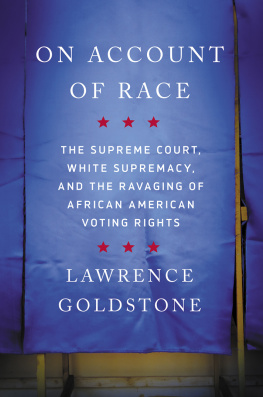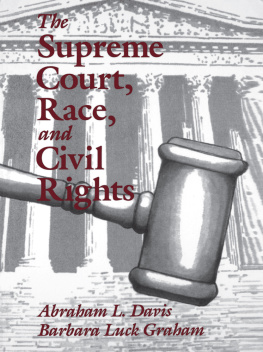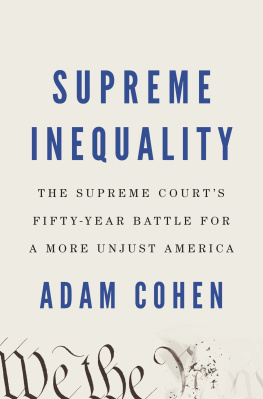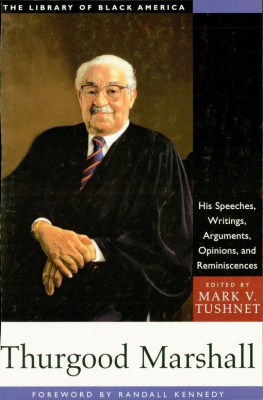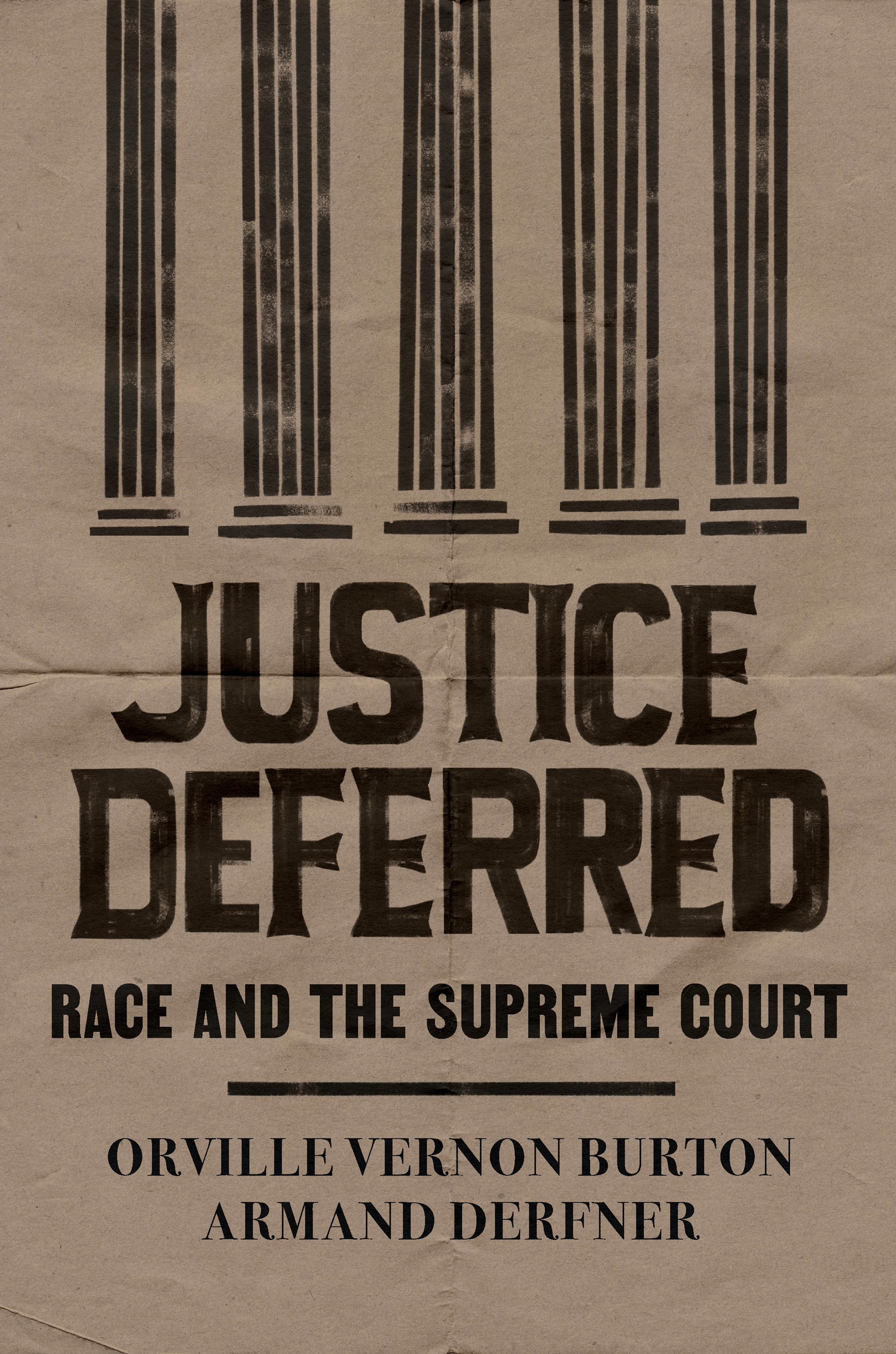We have written this book for general readers, historians, students, and lawyers, and we have tried to accommodate all these audiences while telling the story as comprehensively as possible in a manageable length.
This book is indebted to a vast literature on race and the law in the United States, and we gratefully recognize the thousands of observers and scholars who have studied and chronicled these topics. Because the literature is so extensive, the endnotes in the book are limited to the most essential citations and commentary. A dedicated website supplements the endnotes with added material on many of the cases and historical topics; it also includes links to census reports and relevant web resources. We encourage you to visit the website: http://justice-deferred.clemson.edu.
An Index of Cases provides full case citations along with the pages in the book where the cases are referenced.
We have generally used modern terminology in the book except in direct quotations from earlier times, where readers will see the n-word and other offensive epithets. We chose to leave in these terms in order to convey the often grim reality of this history.
I, [NAME], do solemnly swear (or affirm) that I will administer justice without respect to persons, and do equal right to the poor and to the rich, and that I will faithfully and impartially discharge and perform all the duties incumbent upon me as [TITLE] under the Constitution and laws of the United States. So help me God.
The words Lawthe Guardian of Liberty are carved high on the east faade of the US Supreme Court building in Washington, DC. Americans typically think of the Supreme Court as the guardian of both law and liberty. Even when we rail against some of its particular decisions, Americans recognize it as the institution that ended segregation, guarantees fair trials, and protects free speech and the right to vote. But the reality is more complicated, especially in the area of race and civil rights. In this area, those accomplishments date from a short period in history, from the 1930s to the early 1970s. Before that time, the Supreme Court spent much of its history ignoring or suppressing those rights, and in the half century since the early 1970s the Courts record on civil rights has retreated far more than it has advanced.
Race is a vexing and perplexing concept. DNA has shown that race is a fiction. No gene defines ones race; any random person on earth may be far closer genetically to someone of a different race than to someone of the same race. Race does not even match up with color, as the Supreme Court declared a century ago when it said white meant Caucasian and then said maybe it did not. Even though classifying people by race makes no biological sense, it has been common practice for a long time. The artificial social and legal construct of race has been made a very real part of the social and legal system; different combinations of parentage and pigment have been the basis for handing out privileges and disadvantages to people. Artificial or not, race and racism have been given a major role in human life by law and society, including in the United States.
Nor is race just white and Black. Other groups, such as Native Americans, Latinos, and Asian Americans, are part of the story of race and of the US Supreme Court, and they are part of the story of this book. African Americans (the largest minority until the 2000 census) are at the center of this book because so much of US national history and so many Supreme Court cases have focused on slavery and Jim Crow and their aftermath. This book, while covering the entire United States, often looks toward the South, the place where most African Americans have lived for most of US history.
Just like the notion of race, the Supreme Court can also be vexing and perplexing. Even if its mission were simply to call balls and strikes, as John Roberts suggested in 2005 when he was a nominee to the Court, how does that work when the umpires keep changing, and each new set of umpires can redefine the strike zone, change the number of balls and strikes each batter gets, and even change decisions by previous umpires?
Put together the vexing concept of race with the perplexing Supreme Court, and you have this book. Fusing the perspectives of a historian and a lawyer, the book views US racial history through the lens of the Supreme Court, from slavery in the colonies to the present day, and even projects a glimpse of possible futures.
Race and the Supreme Court are at the center of this drama, but major roles are also played by two other actorsTime and Law. Time is fundamental for understanding race in the United States. African slavery and Jim Crow prevailed for 300 years, and they have been gone for just over 50 years. If we count a generation as 25 years, then American history has consisted of twelve generations of white supremacy and barely two generations of trying, sometimes more aggressively than at other times, to overcome it.
Law, including government action, has always been central in maintaining racial control and racial separation. Law defined enslaved workers as a commodity but also had to grapple with the reality that they were human beings. As a result, both enslaved and free Black people (in all thirteen original colonies and then in the slave states) were regulated by reams of lawslaws that also established a relationship between color and crime. Law also detailed segregation codes and discriminatory rulebooks in twentieth-century federal housing and mortgage agencies. And Law has played a crucial role in events concerning other races, including Native American removal, Chinese exclusion, Japanese internment, Latino discrimination, and more.
In the category of Law, of course, is the work of the Supreme Court, interpreting law and thereby deciding what the law means. The role that law and government action have played in spreading race discrimination and molding attitudes of race prejudice has been virtually erased from public memory by a form of national amnesia. In 1849 this amnesia afflicted a Massachusetts judge who said race prejudice is not created by law and probably cannot be changed by law. Today it afflicts thoseincluding some Supreme Court justiceswho think all-white suburbs just happened by themselves. George Orwell, as usual, had something to say about this: The past was erased, the erasure was forgotten, the lie became the truth.


